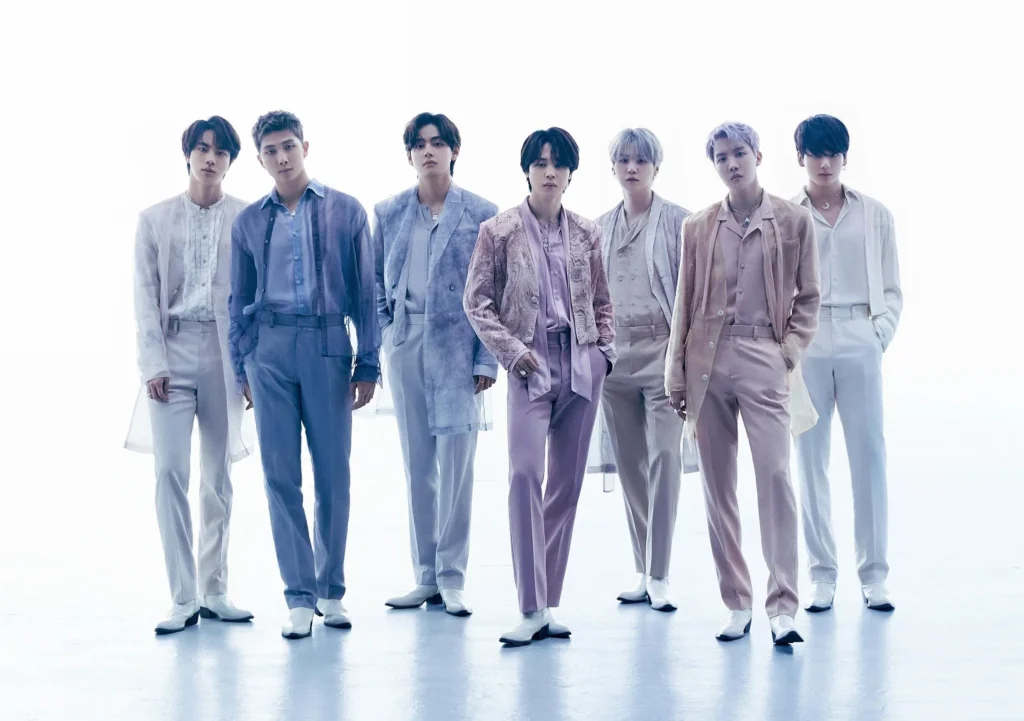BTS, also known as Bangtan Sonyeondan or Bulletproof Boy Scouts, has captivated global audiences with their meaningful lyrics and profound messages. This blog explores The messages behind BTS songs’ discography, offering summaries of key tracks. We will examine how BTS addresses social issues, personal growth, and emotional depth in their songs, and how their lyrical storytelling sets them apart in the music industry.
Decoding BTS: Understanding the Messages Behind Their Songs
Addressing Social Issues
Tackling Societal Pressure
BTS frequently addresses societal pressures in their lyrics, resonating with listeners worldwide. In “N.O,” they highlight the stress students face due to academic expectations. The song criticizes the educational system’s rigid demands, urging listeners to pursue their dreams rather than conform to societal norms. “Go Go” further explores financial struggles faced by young people, using irony to critique consumerism and the pursuit of material wealth.
Mental Health Awareness
BTS openly discusses mental health, breaking stigmas and offering solace to fans. “Whalien 52” uses the metaphor of a lonely whale to express feelings of isolation and alienation. The song conveys the message that even in loneliness, there is hope and understanding. “The Last” by Agust D (Suga’s solo) delves into his personal struggles with depression and anxiety, providing a raw and honest portrayal of mental health challenges.
Themes of Personal Growth
Self-Love and Acceptance
BTS’s discography often emphasizes self-love and acceptance. “Love Myself” serves as a powerful anthem encouraging listeners to embrace their flaws and love themselves unconditionally. This song is part of their UNICEF “Love Myself” campaign, which aims to end violence against children and teens. “Epiphany,” sung by Jin, highlights the realization that loving oneself is essential before loving others. These messages resonate deeply with fans, offering comfort and empowerment.
Overcoming Adversity
Many BTS songs reflect their journey of overcoming adversity. “Not Today” is an anthem of resistance and perseverance, encouraging listeners to keep fighting against hardships. The song’s powerful message and energetic beat inspire resilience and determination. “Spring Day” captures the pain of separation and the hope of reunion, symbolizing the group’s enduring bond and commitment to their fans.
Emotional Depth and Authenticity
Raw Emotional Expression
BTS excels in conveying raw emotions through their music. “The Truth Untold,” a collaboration with Steve Aoki, explores themes of unspoken love and hidden pain. The haunting melody and heartfelt lyrics evoke deep emotional responses from listeners. “2! 3!” by BTS’s J-Hope reflects his journey of self-discovery and his struggles with self-worth, offering a glimpse into his personal growth and resilience.
Genuine Storytelling
Authenticity is a hallmark of BTS’s songwriting. “I Need U” and “Run” reflect the group’s experiences during their trainee days, depicting their struggles and dreams. These songs offer a genuine glimpse into their journey, fostering a strong connection with fans. “Born Singer,” a heartfelt track based on J. Cole’s “Born Sinner,” describes their journey from trainees to idols, emphasizing their gratitude and growth.
Language and Poetic Devices
Bilingual Lyrics
BTS’s use of both Korean and English in their lyrics creates a unique linguistic style. This blend allows them to convey complex emotions while maintaining the song’s rhythm. “Blood Sweat & Tears” is a prime example, seamlessly integrating both languages to discuss the sacrifices made in pursuit of dreams. The bilingual approach enhances the accessibility and appeal of their music to a global audience.
Symbolism and Metaphor
BTS frequently uses symbolism and metaphor to add depth to their lyrics. “Save Me” uses the metaphor of being lost in darkness to express a plea for help and salvation. “Serendipity” by Jimin employs metaphors of nature to describe the feeling of destined love. These literary devices enrich their songs, allowing fans to interpret and connect with the lyrics on multiple levels.
Influence of Literature and Art
Literary Inspirations
BTS draws inspiration from classic literature and poetry, incorporating these elements into their lyrics. “Blood Sweat & Tears” references Hermann Hesse’s “Demian,” exploring themes of temptation and self-discovery. “Butterfly” alludes to the themes of ephemerality and transformation found in many literary works, adding layers of meaning to the song.
Artistic Imagery
Artistic imagery is another prominent feature in BTS’s lyrics. “Black Swan” uses the imagery of a dancer losing passion for their art to convey the fear of creative burnout. The vivid descriptions and emotional depth in their songs showcase BTS’s ability to blend music with visual storytelling, creating a rich and immersive experience for listeners.
The Messages Behind BTS Songs: Re-cap
BTS’s discography is a testament to their lyrical brilliance and their deep connection with fans. Their songs address social issues, promote personal growth, and convey raw emotions with authenticity. Through their unique blend of language, symbolism, and literary references, BTS creates music that resonates on multiple levels. As we celebrate BTS’s remarkable journey, we recognize the profound impact of their words and the enduring legacy of their artistry.

